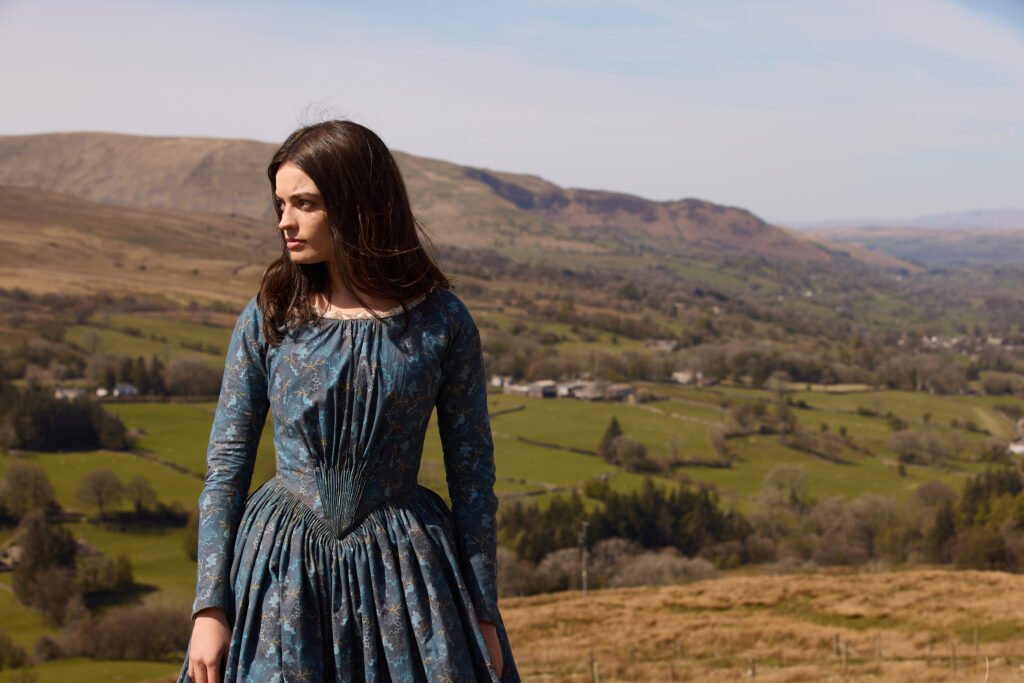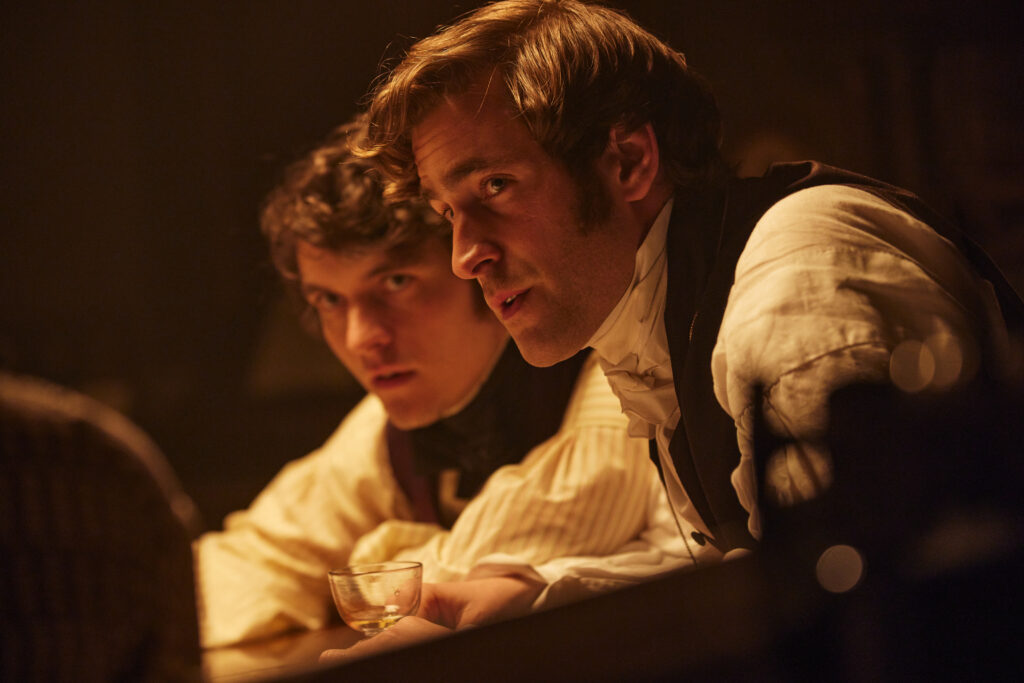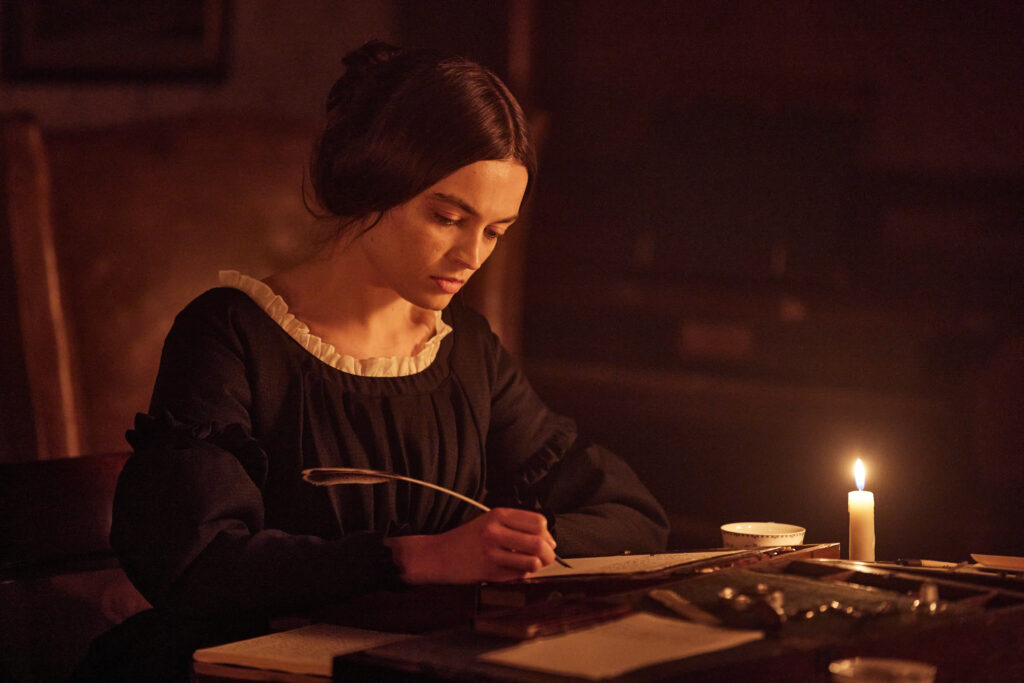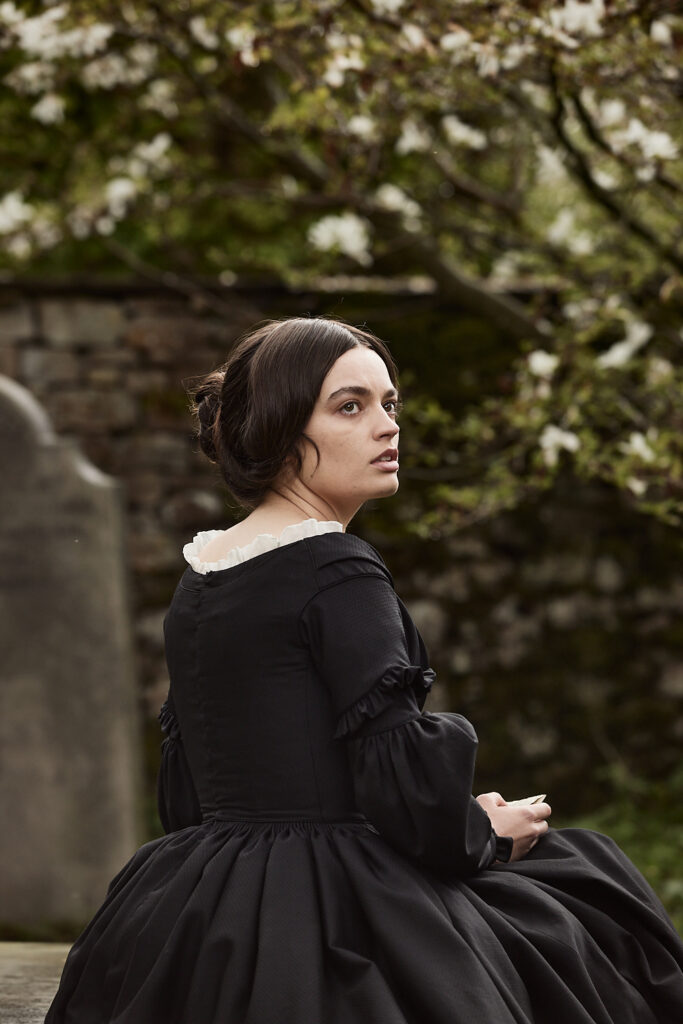This Dussehra, a Hindu festival that signifies the victory of good over evil, I came across a message that was circulating across WhatsApp, Facebook and Instagram that read “Never draw a line around a woman”.
We’ll have to dig a little deeper to fully understand what this means in the context of the festival.
But in short, Dussehra is celebrated as the victory of Lord Ram over Ravan, who captured Goddess Sita with ill intentions. On this day, effigies of demon King Ravan are burned to signify destruction of evil – literally and symbolically.
You may be wondering what has this Hindu festival got to do with the Emma Mackey starrer Emily?
The crux of the above-mentioned statement is the essence of the film and the sentiment it carries for women in every era.
“Never draw a line around a woman”

Based on the life of author Emily Bronte, Emily takes us on a journey that would’ve / could’ve been the inspiration for to write the bestseller “Wuthering Heights”.
The biographical drama introduces Emily atop a hill, talking to herself. She’s one with nature, with the breeze gracing her face and fingers.
Only, she’s not talking to herself – she’s narrating a story between a captain and the queen. Fictional characters developed by Emily through whom she’s vicariously living her present.
She is animated and perky with a twinkle in her eyes as she feels both characters’ emotions and their being. But not for long…
As she climbs down the hill, so does her spark. She transforms into a reclusive young lady, doubting her every move and her existence all together, in a world where she was a misfit.
In a world that is constantly drawing boundaries her to fit in with the rest of the crowd.

A vibrant girl on the hill who moved with confidence, is now too afraid at the foot to even look above her own shoes with a fear of being judged. Or perhaps being punished for thinking differently.
Again, you may still be wondering how does any of this have any correlation with Dussehra?
Emily is a young girl who is imaginative, fierce, and enigmatic, which is also the reason for being misunderstood and a misfit in society.
A heartbroken Emily is forced to wear a literal and metaphorical mask to protect herself from judgement. The pain of being an oddball or perhaps too progressive for her time.
She is fighting for her place in a confined world that’s always rejected her for being eccentric. A world that keeps pushing her deeper in a box and drawing boundaries around her for thinking different.
A world where’s no freedom in thought.

Emily finds solace and comfort in her stories, with fictional characters that give her life. A highly imaginative introvert drowns herself in thoughts that are too wild for people to appreciate or even comprehend.
It’s far easier to simply live inside her head, in a world she has created without boundaries or restriction in thoughts.
She’s loud, provocative, emotional, overwhelmed in her imagination and even thrives in the world made with a pen on paper. But she’s too intractable for the real world.
But it’s only a matter of time till she pushes that line of restriction to a space where there’s total freedom in thought and action. A place in the world where she’s remembered and celebrated as one of the most popular novelist and poet to have ever lived.

Emily, written and directed by Frances O’Connor, is a heartening and inspiring journey of womanhood, love, sibling rivalry and freedom in thought … with a touch a goth.
Cinematography by Nanu Segal is worth praising for capturing the most scenic frames and skilfully setting the tone especially in moments of eerie silences.
Last but not the least, the magnetic presence of leading cast members Mackey and Oliver Jackson-Cohen make it a gripping watch.
The slow-paced screenplay may not be for everyone, but the film’s heart is in the right place to transport you to a different time in the world. A world with yet another woman who had the courage to walk over the line drawn around her and set herself free.